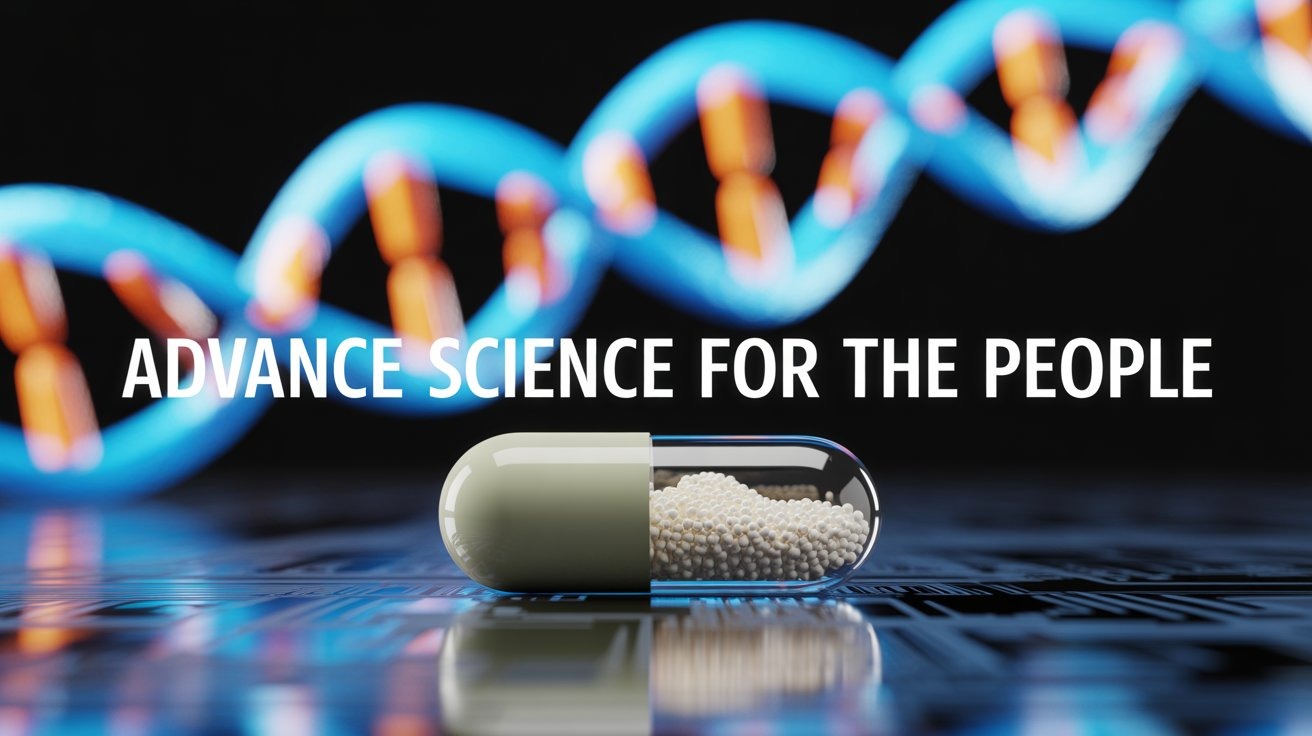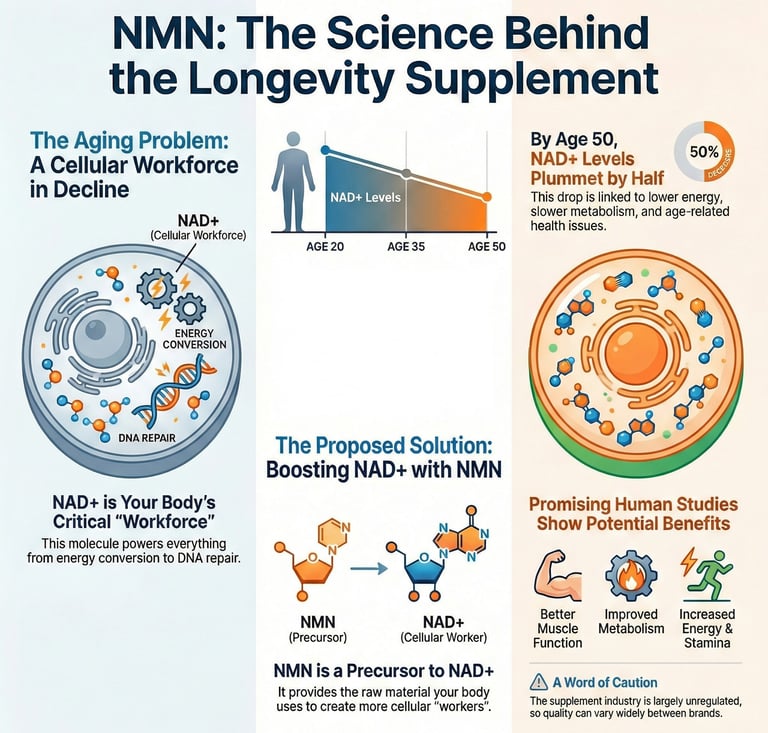Check requirements for Asia's Retirement Visas
Why Is Everyone Talking About NMN? The Science of This New Longevity Supplement
What is NMN and why is it so popular? We break down the science of NMN, its critical link to NAD+, and what new research says about this longevity supplement.
USEFUL MEDICAL KNOWLEDGE
11/10/20253 min read


It seems like everywhere you look online, from health podcasts to that fitness influencer you follow, someone is mentioning "NMN." It’s the buzzy, three-letter acronym being hailed as the next big thing in healthy aging.
But what is it? A magic pill? A complicated marketing fad? Or is there real science behind all the hype?
I first heard about it when a friend, a total bio-hacking enthusiast, started raving that his new NMN supplement gave him "20-year-old energy." I was skeptical. My "20-year-old energy" was mostly fueled by cheap pizza and panic-studying, but I was still curious enough to look into it.
It turns out the buzz isn't about NMN itself, but about what it does.
What Is NMN, Anyway? (The Simple Version)
Let’s get the technical bit out of the way. NMN stands for nicotinamide mononucleotide.
That’s a mouthful, so let's use an analogy.
Think of your body as a massive, bustling factory. This factory runs on a critical, all-purpose molecule called NAD+ (nicotinamide adenine dinucleotide). NAD+ is the workforce. It’s the essential crew that does everything:
Converts food into energy for your cells.
Repairs broken and damaged DNA.
Manages your immune response.
Powers your "longevity genes" (a family of proteins called sirtuins).
Without NAD+, the factory shuts down. Instantly. It's that important.
The "Aging Problem" and Where NMN Fits In
So, if NAD+ is so great, what's the problem?
The problem is that we run out of it. It’s a well-documented fact: by the time we hit 50, our NAD+ levels have plummeted to about half of what they were in our 20s, according to research from Washington University School of Medicine (2023).
This drop isn't just a number on a chart. It’s linked to many of the things we associate with getting older: lower energy, slower metabolism, and age-related health issues.
The factory’s workforce is retiring, and we’re not hiring new workers fast enough.
This is where NMN comes in. NMN is a precursor to NAD+. It’s not the workforce; it's the raw material used to build the workforce. The scientific theory is simple: If you give the factory more raw materials (NMN), can it create more workers (NAD+)?
So, Does It Actually Work? (What the Science Says)
This is the billion-dollar question. Literally. The global NMN market was valued at over $267 million in 2024 and is projected to grow substantially (Global Growth Insights, 2025).
For a long time, most of the exciting results were in mice. (The mice got fitter, sharper, and had better metabolic health. Good for them.)
But human studies are finally catching up. While it is not a "fountain of youth" in a bottle, the results are promising:
Better Muscle Function & Endurance: A 2022 study published in GeroScience found that NMN supplementation, especially at 600 mg and 900 mg doses, significantly improved walking endurance and self-assessed health in healthy adults over 60 days.
Improved Metabolism: Other human trials have shown NMN can improve insulin sensitivity, which is crucial for managing blood sugar and supporting a healthy metabolism, particularly in postmenopausal women.
Energy & Stamina: While harder to measure, many users (like my friend) anecdotally report a noticeable, non-jittery boost in their day-to-day energy levels.
It’s important to be realistic. The science is still young. NMN isn't going to make you 21 again. The goal here is to support your cellular health so you can feel better, longer. Think "healthspan," not just "lifespan."
Is It Safe and What's the Catch?
So far, human clinical trials have shown NMN to be generally safe and well-tolerated at common doses.
The "catch" is that the supplement world is notoriously unregulated. It’s also worth noting that the FDA’s stance on NMN as a dietary supplement has been complicated, as it's also being investigated as a new drug. This means quality can vary wildly between brands.
As with any new supplement, it is essential to talk to your doctor before starting. They can help you decide if it’s right for your personal health goals.
So, why is everyone talking about NMN? Because it’s one of the first popular supplements that directly targets a core, fundamental process of aging—the decline of our cellular "workforce." It’s not magic, but it is fascinating science.
What are your thoughts on the science of healthy aging? Have you tried NMN or are you curious about it? Drop a comment and let's talk about it!
Disclaimer: This article is for informational purposes only and does not constitute professional medical advice. Always consult with a qualified healthcare provider before making any decisions about your health or starting a new supplement.



Address
Blk 8 Cantonment Close
SIngapore